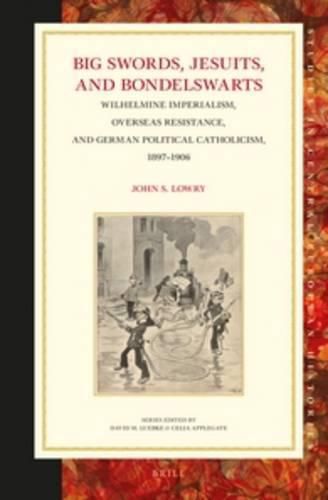Readings Newsletter
Become a Readings Member to make your shopping experience even easier.
Sign in or sign up for free!
You’re not far away from qualifying for FREE standard shipping within Australia
You’ve qualified for FREE standard shipping within Australia
The cart is loading…






In Big Swords, Jesuits, and Bondelswarts, John S. Lowry demonstrates that anti-imperialist resistance movements overseas significantly shaped the course of Wilhelmine domestic politics between 1897 and 1906. In 1898 and 1900, for example, the consequences of Chinese, Cuban, and Samoan resistance permitted Berlin to steer two large naval laws through the Reichstag by enabling the government to garner critical votes from the Catholic Center Party through pro-Catholic gestures overseas, rather than via repeal of the Anti-Jesuit Law at home. By contrast, after 1903 costly uprisings throughout German-occupied Africa generated acute fiscal concerns among Center Party delegates, and African civilian protests against colonial misrule aroused missionary and Centrist ire. Lowry emphasizes that the ensuing Reichstag dissolution of 1906 arose much more directly from African factors than previous scholarship has recognized.
$9.00 standard shipping within Australia
FREE standard shipping within Australia for orders over $100.00
Express & International shipping calculated at checkout
In Big Swords, Jesuits, and Bondelswarts, John S. Lowry demonstrates that anti-imperialist resistance movements overseas significantly shaped the course of Wilhelmine domestic politics between 1897 and 1906. In 1898 and 1900, for example, the consequences of Chinese, Cuban, and Samoan resistance permitted Berlin to steer two large naval laws through the Reichstag by enabling the government to garner critical votes from the Catholic Center Party through pro-Catholic gestures overseas, rather than via repeal of the Anti-Jesuit Law at home. By contrast, after 1903 costly uprisings throughout German-occupied Africa generated acute fiscal concerns among Center Party delegates, and African civilian protests against colonial misrule aroused missionary and Centrist ire. Lowry emphasizes that the ensuing Reichstag dissolution of 1906 arose much more directly from African factors than previous scholarship has recognized.